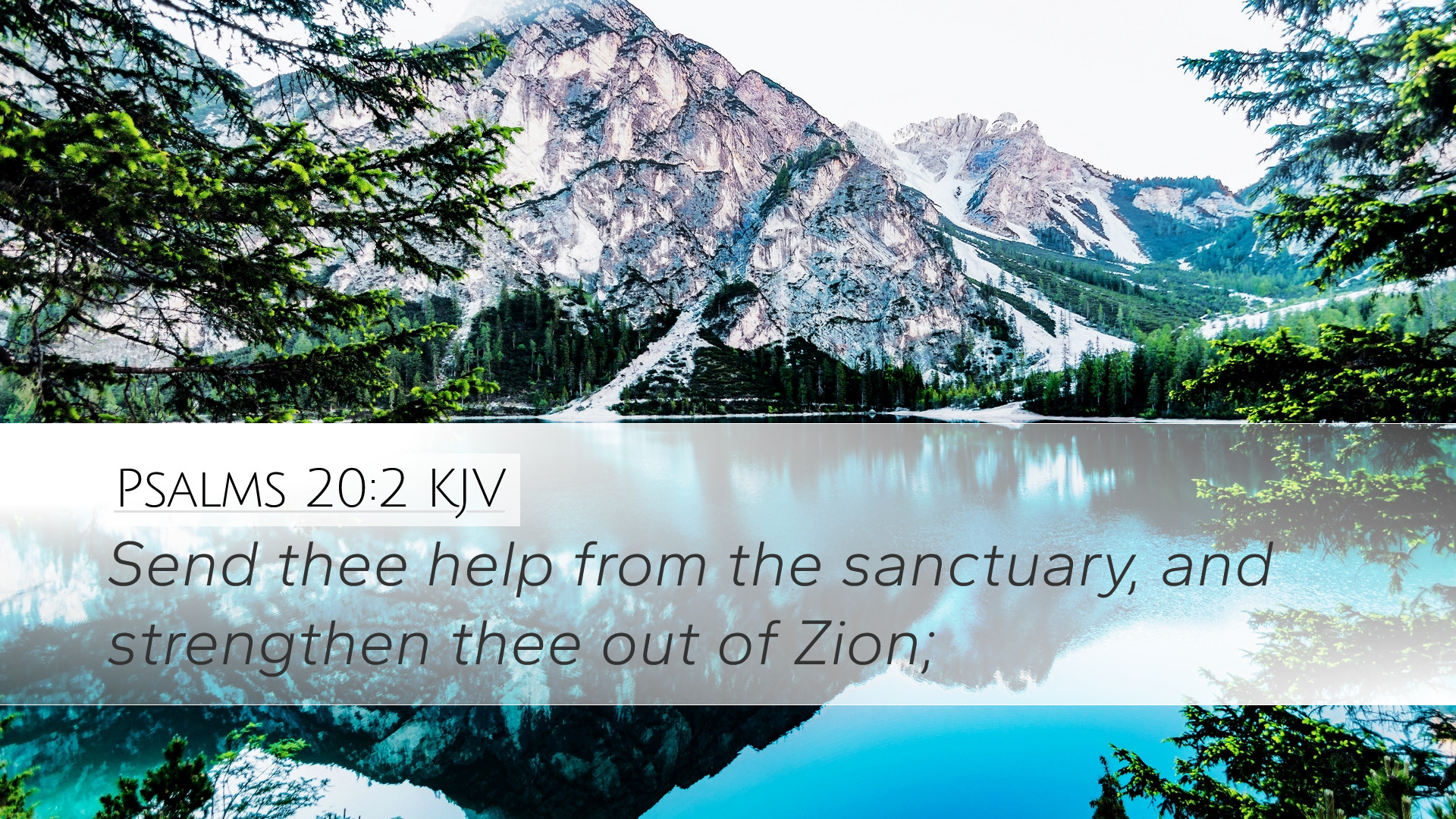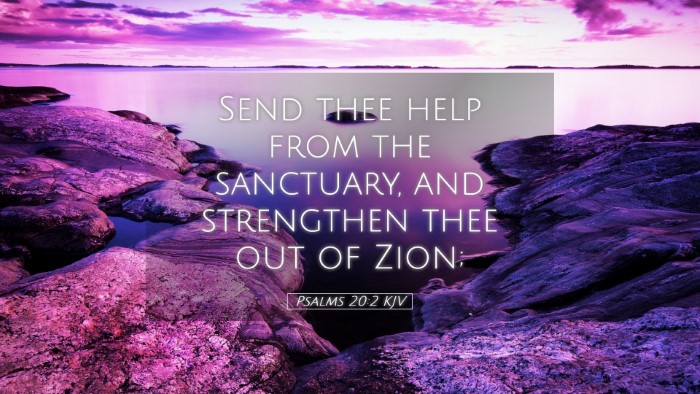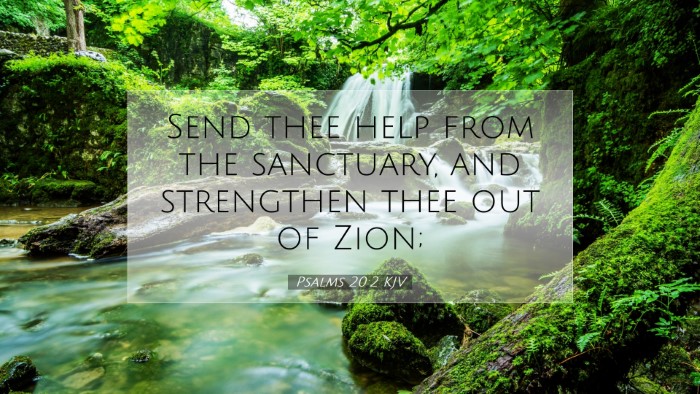Commentary on Psalms 20:2
Psalms 20:2: "Send thee help from the sanctuary, and strengthen thee out of Zion."
Introduction
The verse Psalms 20:2 provides profound insights into the themes of divine assistance and support. It is a prayer for strength and help, woven into the assurance of God’s presence through His sanctuary and Zion, which represents His chosen dwelling place. The commentary derived from various public domain sources aims to enrich our understanding of this verse for pastors, students, theologians, and Bible scholars alike.
The Context of the Psalm
Matthew Henry highlights that this Psalm is a royal Psalm, likely composed for the successful reign of a king, possibly David. It reflects the communal prayers of God’s people as they seek His favor during times of conflict or impending trials. The overarching theme centers around reliance upon God’s strength rather than human might. Albert Barnes echoes this sentiment, noting that the focus is primarily on God as the source of help. This captures the essence of faith and dependence, setting the stage for the specific request made in verse 2.
Divine Help: "Send thee help from the sanctuary"
In this part of the verse, the phrase "Send thee help from the sanctuary" indicates a plea for divine intervention. Adam Clarke emphasizes that the "sanctuary" represents the sacred space where God's presence dwells, particularly in the context of ancient Israel’s tabernacle and later the temple in Jerusalem. The sanctuary is not only a physical location but also symbolizes a spiritual reality—God's commitment to aid those who call upon Him.
Furthermore, the notion of sending help suggests that assistance is not merely an internal assurance but a divine action that impacts the believer's life in tangible ways. This prayer underlines the expectation that God responds to the needs of His people actively and purposefully.
The Significance of Zion: "and strengthen thee out of Zion"
The reference to Zion adds another layer of meaning. For the Israelites, Zion was regarded as the city of God, where His presence resided. Henry notes that Zion signifies the strength and safety found in a relationship with God. This is crucial as it signals to the faithful that their source of strength comes from being aligned with God's purpose and dwelling among His people.
Clarke also reflects on the vital connection between Zion and the divine promises made to Israel. It is in Zion that the people find assurance, stability, and empowerment. Thus, the plea for strength "out of Zion" highlights the belief that God’s intervention comes through His established authority and the covenantal promises associated with His chosen people.
Theological Reflections
From a theological perspective, this verse encapsulates key doctrines of divine providence and the role of communal intercession. Barnes comments on the importance of prayer in the life of believers, particularly noting how collective prayer invites God's assistance in times of need. This sheds light on the cooperative aspect of faith, which is vital for the church’s spiritual life.
Moreover, the directive to call upon God recognizes His sovereignty in granting strength and help. This acknowledgment fosters a deeper faith, urging believers to rely on God’s capabilities rather than their strengths. It supports the theological assertion that human efforts, although valuable, are insufficient without God’s empowerment.
Practical Application for Believers
For contemporary believers, Psalms 20:2 remains relevant, calling us to seek divine help in our struggles. Matthew Henry advises that followers of Christ should regularly seek God's assistance through prayer, particularly in challenging situations. Calling upon the "sanctuary" can be understood as engaging in prayer and worship, approaching God where He promises to meet us.
- Emphasizing Prayer: Believers must make prayer a priority, especially when facing difficulties. Seeking help from God is not an admission of weakness, but rather an acknowledgment of His strength.
- Finding Strength in Community: Engaging with the faith community can mimic the collective appeal seen in Psalms 20. Churches should cultivate an environment where congregants support one another spiritually, praying for each other’s needs.
- Trust in God's Timing: God's help does not always come in the form or timing that we expect. Strengthening faith involves trusting in God's plan and timing, knowing that He will provide help from the sanctuary and strength from Zion at the right moment.
Conclusion
Psalms 20:2 stands as a profound reminder of the faithful reliance on God amid the uncertainties of life. It illustrates the connection between divine help, communal prayer, and the believer's journey towards spiritual strength. As we explore the depths of this verse through the insights of esteemed commentators, we are encouraged to embody a faith that actively seeks God’s assistance, acknowledges His sovereignty, and anticipates His strength in our lives.


